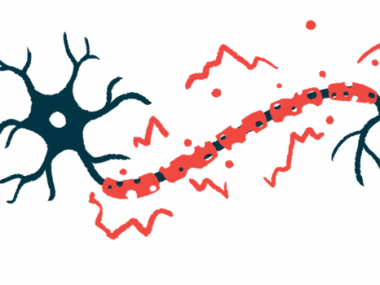The Friedreich’s Ataxia Obstacle Has Become the Way
Written by |

Since Friedreich’s ataxia (FA) entered my life in 2013, I have spent a lot of time blaming it for getting in the way of the life I had planned.
I would no longer be able to be the fun mom who did cannonball contests with her kids, or the enviably effortless wife who two-stepped with her husband on date nights, or the cool mom who helped coach third base in T-ball. FA and its cruel, degenerative, progressive symptoms got in my way and changed the course of my life.
I was recently introduced to “The Obstacle Is the Way: The Timeless Art of Turning Trials into Triumph” by Ryan Holiday. In this bestseller, Holiday examines Stoic philosophies, particularly that of Roman Emperor Marcus Aurelius.
The book includes the following quote from Aurelius: “Our actions may be impeded …, but there can be no impeding our intentions or dispositions. Because we can accommodate and adapt. The mind adapts and converts to its own purposes the obstacle to our acting. The impediment to action advances action. What stands in the way becomes the way.”
FA isn’t allowing me to be the person I had planned to be. It is an ever-changing, ever-growing beast of an obstacle that is always in my way.
For a while, I acted like FA was an insurmountable obstacle. But once I decided that life with FA was still worth enjoying, I began to accommodate and adapt. I found new ways forward, and took my FA obstacle into account.
Although my original ideas for my future were impeded, maneuvering this obstacle has shaped me into a person I had never considered becoming before FA.
Seeing my body fail bit by bit, day by day, is both devastatingly terrifying and urgently motivating. It causes me to seize opportunities with more passion, and prepare for obstacles more wisely.
FA stands in my way, but I am making it become the way. I am turning this obstacle into an opportunity.
My condition caused me to mature and appreciate my life — past, present, and future — in ways I had never anticipated. The very thing that I thought would hold me back and ruin my life has helped transform me into the person I am meant to be.
I am so appreciative of my life before FA. I am thankful I was able to lead a relatively carefree childhood in which I played sports and dreamed of a future with limitless possibilities. I am incredibly grateful that I got to fall in love and plan a future with the love of my life while studying subjects that fascinated and inspired me in college. I am blessed that I got to marry and start my young adult life when my future was uncomplicated.
Sure, none of that was perfect, but it wasn’t complicated by FA. Because disease onset usually happens during childhood, many of my fellow FA patients weren’t so lucky, which makes me appreciate my past even more.
Now that I am in the phase of life I once desperately dreaded — dependent on mobility aids — I see that the biggest obstacle was my mental perception of that milestone. I have adapted to my limitations. I have made accommodations for my obstacle, and I have a life that is full of more joy and fulfillment than the scariness I had once imagined.
The present isn’t as bad as past me had anticipated. That gives me hope and encouragement as I look to the future.
I will continue trying to make FA, the thing that stands in my way, become the way. I will use FA to spread light.
***
Friedreich’s Ataxia News is strictly a news and information website about the disease. It does not provide medical advice, diagnosis or treatment. This content is not intended to be a substitute for professional medical advice, diagnosis, or treatment. Always seek the advice of your physician or another qualified health provider with any questions you may have regarding a medical condition. Never disregard professional medical advice or delay in seeking it because of something you have read on this website.The opinions expressed in this column are not those of Friedreich’s Ataxia News or its parent company, Bionews, and are intended to spark discussion about issues pertaining to Friedreich’s ataxia.






Leave a comment
Fill in the required fields to post. Your email address will not be published.